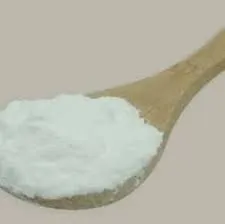The Role of PQQ and Glutathione in Cellular Health
In recent years, two compounds have garnered significant attention in the realm of health and nutrition Pyrroloquinoline Quinone (PQQ) and glutathione. Both of these substances play vital roles in cellular function and overall well-being, making them intriguing subjects of study for scientists and health enthusiasts alike. This article offers an overview of PQQ and glutathione, their functions, and how they may work together to support health.
Understanding PQQ
PQQ is a small quinone molecule that is found naturally in a variety of foods including fermented soybeans, spinach, and green tea. It is recognized for its potential to promote cellular energy metabolism. One of the most critical roles of PQQ is its ability to stimulate the growth of new mitochondria, the powerhouses of our cells. By enhancing mitochondrial biogenesis, PQQ supports the production of ATP (adenosine triphosphate), which is essential for energy transfer within cells.
Furthermore, PQQ is noted for its antioxidant properties, helping to neutralize free radicals that can cause cellular damage. This attribute not only protects cells but also aids in reducing oxidative stress, which is linked to various chronic diseases and aging processes. In essence, PQQ can be viewed as a vital component in maintaining a healthy, energy-efficient, and resilient cellular environment.
The Importance of Glutathione
Glutathione, often referred to as the body’s master antioxidant, is a tripeptide composed of three amino acids cysteine, glutamine, and glycine. It is present in every cell and plays a crucial role in detoxification, immune function, and maintaining cellular health. By neutralizing free radicals, glutathione protects cells from oxidative damage and supports the immune system by promoting optimal cellular function.
pqq glutathione

One of glutathione's key functions is its ability to regenerate and support other antioxidants, including vitamins C and E. Additionally, it plays a role in removing toxins from the body, often by conjugating with harmful substances to make them more water-soluble, thereby facilitating their excretion. This detoxification process is vital for maintaining homeostasis and preventing the accumulation of potentially harmful compounds in the body.
Synergistic Effects of PQQ and Glutathione
While PQQ and glutathione serve distinct functions, they also complement each other in promoting cellular health. PQQ enhances mitochondrial function, thereby increasing energy production and improving the overall activity of cells. This boost in energy may help facilitate better performance of glutathione, which is crucial for detoxification and antioxidant defense.
Moreover, the antioxidant properties of both compounds can provide a dual layer of protection against oxidative stress. Research indicates that by improving mitochondrial function and reducing oxidative damage, PQQ may indirectly help preserve glutathione levels within cells. This interplay could prove beneficial for conditions related to oxidative stress, including neurodegenerative diseases, cardiovascular issues, and aging.
Conclusion A Holistic Approach to Health
Incorporating both PQQ and glutathione into our lifestyle through a balanced diet rich in antioxidants may be a promising strategy for enhancing cellular health. Foods high in PQQ, such as fermented foods and certain fruits, along with those rich in sulfur-containing amino acids, can support glutathione production in the body.
As research continues to evolve, understanding the interconnected roles of PQQ and glutathione in cellular health will be fundamental in appreciating their potential benefits. While supplementation is available, it is essential to approach it holistically, considering dietary sources and lifestyle factors that can optimize the body’s natural production of these vital compounds. Ultimately, fostering a healthier and more energetic life may hinge on recognizing the synergy between PQQ and glutathione, promoting a proactive approach to wellness.

